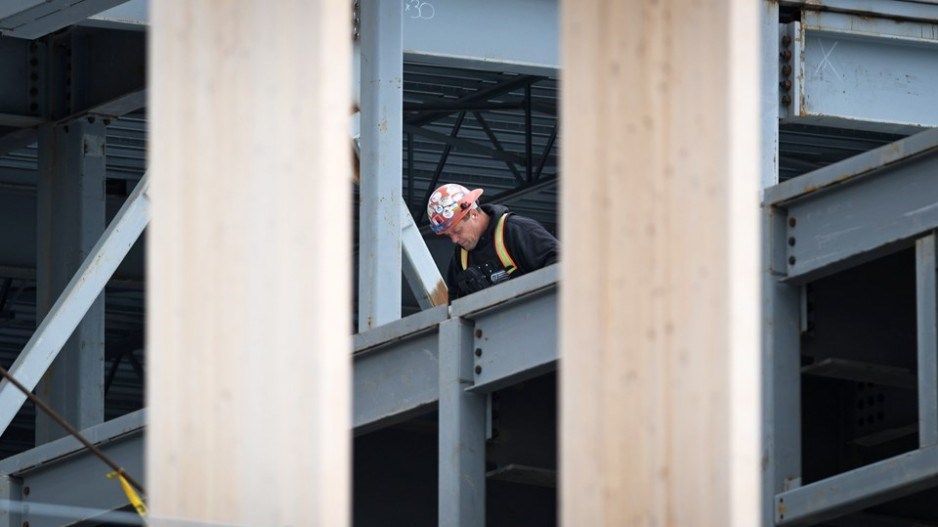Though demand remains high for construction work in B.C., getting paid on time is said to be the biggest issue facing job sites, according to new survey results from the B.C. Construction Association (BCCA).
Eighty-two per cent of contracting companies, regardless of size, were paid late for “substantially completed work” at least once this past year, according to the April 17 survey.
The survey also revealed that payment was late 25 per cent of the time within the same period for companies with 100 employees or more. Smaller companies with 20 employees or fewer reported late payment 30 per cent of the time.
Labour shortages, safety and permitting red tape were among other top issues survey respondents reported. These pressures are “undermining development” throughout the province in a time when housing and rental stock are in short supply, and profit margins have been dwindling, according to the survey.
“It's true that labour shortages and the cost of materials are constant challenges. But industry can manage these pressures – it’s what we do. The biggest hindrances to building housing and other infrastructure today are the associated operations of the authorities having jurisdiction, from Crowns to Ministries and Municipalities,” said Chris Atchison, president of the BCCA, in a statement.
The construction industry’s contribution to provincial GDP is up 4 per cent compared with last year. Roughly 250,000 British Columbians rely on construction for a paycheque, making it what the BCCA described as the No. 1 employer in the province’s goods sector.
“Until B.C. catches up to the rest of Canada, the U.S.A. and Britain, and introduces prompt payment legislation, policy-makers need to be tuned into the fact that the financial risks for B.C.’s contractors are nearing a breaking point.” said Atchison.
The survey highlights the lack of payment legislation is particularly challenging amid skyrocketing borrowing costs, meaning financing projects is a burden that some company owners can’t afford.
One survey respondent stated they’ve contemplated leaving the industry due to uncertainty over whether they will get paid on time and meet payroll obligations.
Contract disputes related to costs are becoming more commonplace within the industry, with 44 per cent of small contracting companies filing a fixed-price contract dispute within the last year, according to the survey.
Sixty-one per cent of small contractors surveyed said they’re considering leaving the industry amid these payment pressures.
About 90 per cent of companies have 10 employees or less, with the average company employing 6.24 workers – down 11 per cent over the last three years.
For those who are able to get paid on time, the competition within the industry is resulting in annual earnings that rose 22 per cent in the last five years to an average of $70,088. Forty-five per cent of respondents reported switching companies in order to get higher pay.



